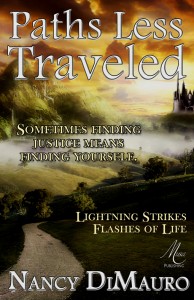 When we started discussing the idea of a publishing themed month, we talked about the different types of publishing. I’m fortunate enough to be part of a wonderful E-Publisher, Musa Publishing. Celina Summers, the chief editor and founder of Musa, often talks about how she was frustrated that people equated E-Publishing with Self-Publishing. As a result, Celina was a natural choice to be our first guest poster this month. Writers have more options than ever to get to the reader. For a general overview of those options, read on and see what Celina said.
When we started discussing the idea of a publishing themed month, we talked about the different types of publishing. I’m fortunate enough to be part of a wonderful E-Publisher, Musa Publishing. Celina Summers, the chief editor and founder of Musa, often talks about how she was frustrated that people equated E-Publishing with Self-Publishing. As a result, Celina was a natural choice to be our first guest poster this month. Writers have more options than ever to get to the reader. For a general overview of those options, read on and see what Celina said.
So take it away, Celina.
*********
It’s a great thing to be able to tell your family and friends that you’re published. After all, you’ve achieved a lifetime goal. Millions of people have written stories or novels without any of them seeing the light of day. But in the last couple of decades, the publishing industry has changed significantly. With the onset of digital publishing, self-publishing-once an outlet only the financially well-endowed could consider-took off. According to The Bookseller (http://www.thebookseller.com/news/publishing-proliferates-thanks-pod-and-digital.html) :
Nielsen 2010 book output figures show that 151,969 new titles were published in 2010, a leap of 14% on the output number given this time last year. The figure is derived from the number of ISBNs Nielsen issues over the year. However, the 2009 figure, of 133,000, has since been increased to 157,039 because of the late addition of digital titles in that year, a factor that may also further increase the 2010 figure. It means that year-on-year book production fell 3.2%, though the trend shows that output has soared: since 2008 it is up 13%, and since 2001, the market has risen by close to 40%.
Once upon a time, there was one way to get published. You wrote your novel, typed it up, sent it to an agent, the agent loved it and submitted it to a traditional print publisher, who bought it and then published it. But now, things are a lot more complicated. E-publishing has taken off, with thousands of young publishing houses releasing digital-only content. At the same time, self-publishing has exploded, with authors publishing their own books directly to the reader. And of course, lurking around the sewers of the industry, vanity presses are always eager to prey upon the uninformed author.
But these four terms are not synonymous. There’s a lot of difference between traditional publishing, electronic publishing, and self-publishing. (And vanity publishing is, at its heart, a scam) Where this becomes a problem is when the writer announces “I’m published!” but doesn’t distinguish between the different types of publishing. Because unless your self-published book sells millions of copies, chances are that an agent or book industry exec isn’t going to be interested in that publishing credit-or a bookstore. Regardless of what folks might think, there is a big difference between landing a multiple book deal with Random House and self-publishing a book through Lulu. So in order to avoid trouble down the line, it’s important for an author to self-represent correctly-and, more importantly, to use the different avenues in publishing wisely, to build a foundation for a writing career.
So, let’s take a look at each term separately.
Traditional publishing-Print. To most writers, this means New York. These are books that are represented by agents (most likely) and subsequently published by a major house-known as the Big Six-and any of their imprints. These books are released in paperback. Some come out in hardback. These books (usually) are where the legitimate bestseller lists originate. The author receives an advance for her book(s), and her titles are found in brick and mortar bookstores. In the past couple of years, the Big Six have jumped on board and begun to digitally publish their titles-at much higher prices and a much smaller royalty rate.
Let me interject that there are hundreds of legitimate, reputable, outstanding small presses out there-independent publishers that have nothing to do with New York or the Big Six. Indie presses are a fantastic place for a young writer to start out, especially genre writers. I’m going to put indie publishers under the traditional publisher title because they, too, publish primarily in print.
E-publishing-These publishing houses are digital first. They publish e-books primarily, although some are moving into POD(print on demand) availability for their books. An e-publisher is a genuine small house, following the same submissions, acquisitions, and editing processes as traditional publishing. Five years ago, e-publishing wasn’t considered a legitimate publishing credit by agents and New York publishers. That mindset is changing as the popularity of digital books increases.
Self-publishing-This is when a writer circumvents the publishing industry and releases his work himself. That also means the writer is completely responsible for making sure the book goes through all the proper processes-editing, typesetting, cover art, formatting, uploading, publicity and marketing. Unfortunately many self-published authors don’t do this. They release the book and then wait for the millions of dollars to roll in, which, unfortunately, rarely happens. For every self-published author like Amanda Hocking, there are tens of thousands of authors who never sell more than ten copies of their book.
Vanity publishing-Where an author pays to be published. Any time a publisher (or agent) asks for money up front, run away. Run fast. Yog’s law: money flows TO the author.
In the past six months, I can’t tell you how many people have told me their book was e-published, attempting to hoodwink me into thinking that another publisher had signed their book, put it through the processes, and released the book-only to find out later that in fact, the writer had self-published. (And no, making up a publishing company that only publishes one author’s work really doesn’t fool a publisher. If you’re self-published, just admit it.) Some come to me only when their book didn’t make money and they want to try again. Usually, those writers don’t know why. I do know why.
You see-there’s a reason for the ‘gatekeepers’ in publishing. The agents, the slushpile readers, the acquisitions assistants all have the same goal in mind: they are looking for publishable books. Books that are strong technically, that are engaging and entertaining. In other words, books that people want to read. When I am reading through submissions, I might ask to see one manuscript out of fifty. That’s not because the stories are bad, but because the story is not publishable in its current condition. Occasionally, however, I will be tempted to put more work into a manuscript because of the writer’s publishing history-her resume. And this is where the correct publishing types really makes a difference.
In publishing, as in any profession, people need to be accurate and honest about how they present themselves to others. If a writer’s book was self-published, it does no good for that writer to claim they were e-published. Sure, the author electronically published his book, but the book never went through any kind of evaluation, most probably wasn’t edited (because many self-published authors wish to retain all creative control over their book) and more than likely didn’t sell more than a hundred copies. If that book was e-published, to me that means that the author is familiar with the publication process-namely editing. And that right there predisposes me to look upon that submission more favorably, because I know that I won’t be having to drag an unwilling writer through the process that will make that particular book better.
And of course, once you start talking traditional publishing, unless your books have sold hundreds of thousands of copies, it doesn’t matter very much if you’re e-published or self-published or published-by-your-Uncle-Vinnie-in-Des Moines published. To a traditional publisher, it might as well be your first book. However, among the gatekeepers to traditional publishing, e-publishing is no longer considered the red-headed stepchild of publishing. I asked an agents’ panel three years ago if they considered e-publishing a legitimate publishing credit. About 70% said yes.
Since we opened Musa Publishing, agents are now submitting to us.
It makes sense, after all. With e-publishing’s higher royalties, lower overhead and international availability thanks to e-tailers like Amazon, authors and agents are intrigued by the possible financial rewards of a popular e-published success. Publishers like Musa Publishing are able to create a high quality product that readers enjoy, at a price readers appreciate. A lot of writers are making the same decision I made too-to begin my writing career in e-publishing. I could make better, immediate money while learning my craft and improving my work.
And the readers are reaping the benefits, as anyone with a fully stocked Nook or Kindle will tell you.
So there are sizable differences in the different types of publishing currently available, and it behooves the author to self-identify correctly. As a writer, it’s important to understand the differences-and to use those differences wisely as you plot out your career.
****


Thanks for that great insight. Celina. For my short story collection, Paths Less Traveled, my collection releasing today, Shots at Redemption, or a host of other amazing stories in just about every genre, please check out Musa Publishing.




